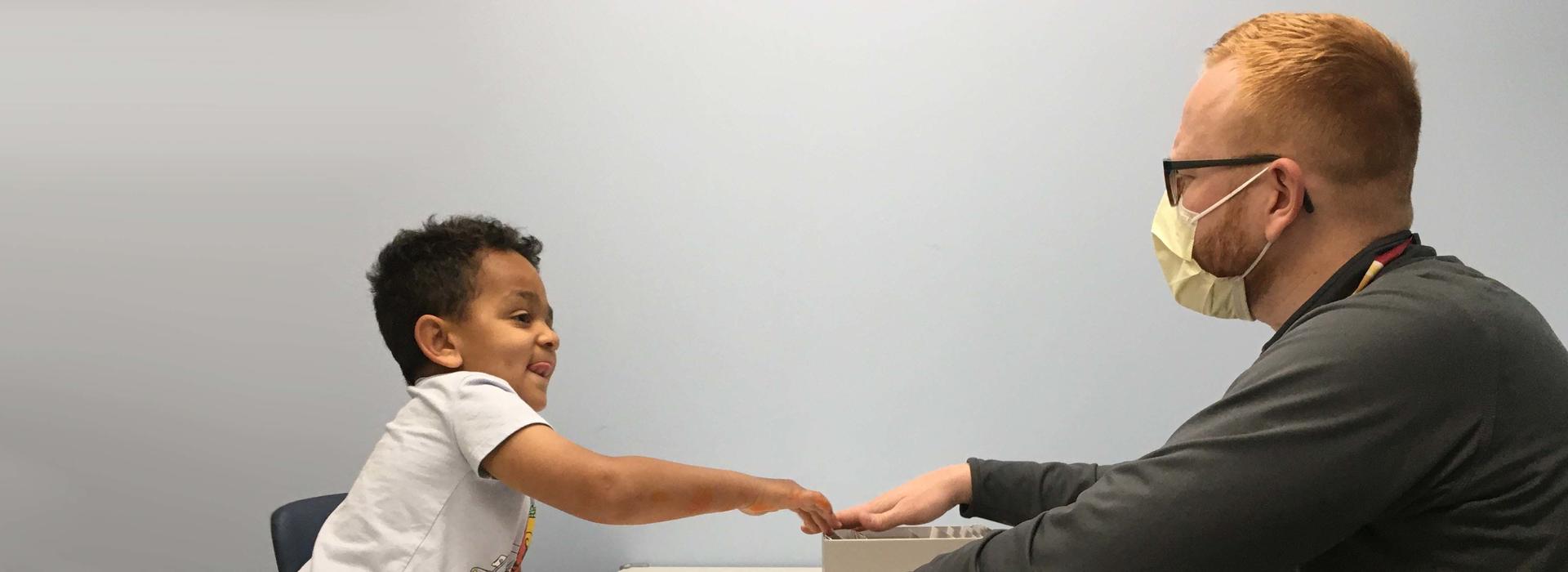
Neurodevelopmental Program in Rare Disease
The Neurodevelopmental Program in Rare Disease (NPRD) serves to advance the University of Minnesota’s high standards for the care of people and families touched by rare disease conditions.
We are pediatric neuropsychologists, pediatric psychologists, autism specialty psychologists, and neuroscientists who aim to deepen the understanding of the functional, quality of life, and mental health impacts of rare diseases.
Our goal is to improve approaches for disease monitoring, predicting outcomes, and optimizing patient and family management.
Our focus on research serves to further characterize neurocognitive and neurobehavioral courses of disease, identify sensitive prognostic indicators of outcomes using both biomarker and functional data, and clarify and raise awareness about disease aspects that are under-studied but meaningful to the rare disease community.
Our Team
Our team consists of clinicians and researchers who are dedicated to sharing their rare disease expertise, furthering critical research, supporting families, and tailoring care to each patient. We are a multidisciplinary team that works together to support the care of the whole patient.
All members of the Division of Clinical Behavioral Neuroscience embrace the opportunity to support families who are navigating a rare disease.
Contact Us
For clinical questions:
The Masonic Institute for the Developing Brain
2025 E River Pkwy
Minneapolis, MN 55414
For research, educational, advocacy, and other program matters:
NPRD@umn.edu
The NPRD is fully integrated into the training experience of learners at multiple stages of their training and development.
Psychology practicum students, predoctoral interns, post doctoral fellows alike have the opportunity to engage in the clinical care of patients with rare diseases under the supervision of experts and, if desired, join in mentored research activities and patient advocacy opportunities.
Learners who have engaged with and been mentored through the NPRD as part of their training experience have presented at major national and international conferences, secured subsequent fellowships with rare disease networks, submitted their own grants for prospective rare disease work, and generated manuscripts in peer reviewed journals.
Learners who train with the NPRD leave with a unique knowledge base that prepares them for future work with patients with a variety of rare diseases and neurodegenerative conditions. This training is a particular asset for those interested in future careers in a medical setting, an academic health center, or research/industry.
For more information about NPRD-affiliated clinical training opportunities at the University of Minnesota:
Pediatric Neuropsychology Post Doctoral Fellowship
Pediatric Psychology Predoctoral Internship
Autism and Neurodevelopment postdoctoral fellowship
Autism and Neurodevelopment practicum
Workshops & Trainings:
Autism trainings offered through the University of Minnesota
Our research aims to deepen the understanding of the functional, quality of life, and mental health impacts of rare diseases. We focus on the effort to characterize neurocognitive and neurobehavioral courses of disease, identify sensitive prognostic indicators of outcomes using both biomarker and functional data, and clarify and raise awareness about disease aspects that are under-studied but meaningful to the rare disease community.